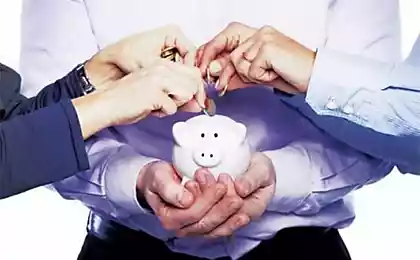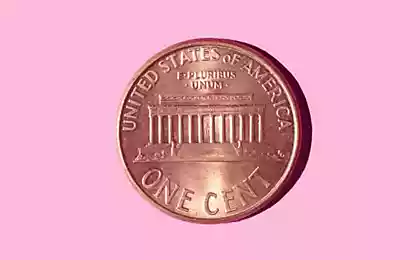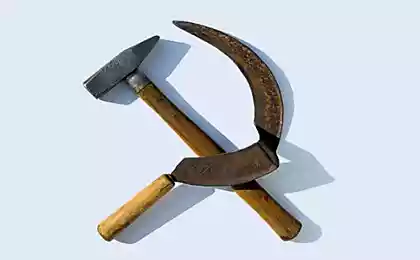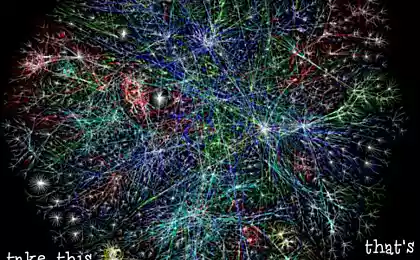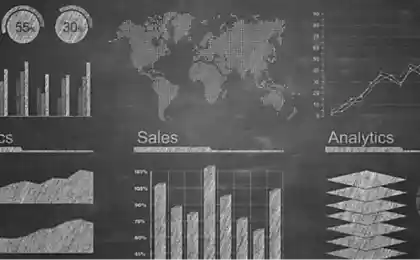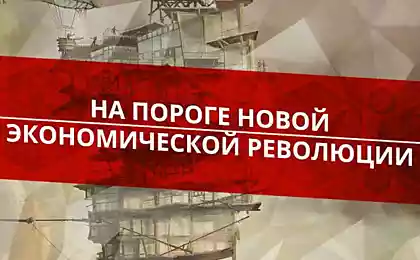220
Economist Pavel Daneiko: the era of the mass market is coming to an end, we are waiting for the craft revolution
Pavel Daneiko is an economist, general director of IPM Business School. Experience in the supervisory boards of Silvano Fashion Group, JV CJSC Milavitsa, CJSC Uniter, CASE (Ukraine). One of the founders and former rector of Moscow Business School. Management and consulting experience – more than 25 years. Executive MBA program teacher.
The era of the mass market is coming to an end. Just like the Industrial Revolution, the craft revolution is coming today. Its precursors are already visible everywhere. Recall the automotive industry in the middle of the XX century: cars of the same series, coming down the assembly line, were completely the same. Now, ordering a car, you collect a real set of Lego, the technique is carefully customized for you, your desires.
I remember in one movie, describing the Middle Ages, a scene was shown: the main character, to make money, sewed boots and carried them to the market to sell. Such a situation could not have happened at the time. The size of shoes did not exist as such, they appeared when mass production developed. Shoes were sewn only to order, for a specific leg, based on the requirements of a particular customer. We're slowly moving in that direction. This is the first trend..
I think in 10 to 15 years. We will practically abandon clothing stores in their traditional sense.. Most likely, you will go to a local or international site, indicate your size, fabric, cut features and eventually receive a product created specifically for you.
The second trend is lower prices for everything. From the economic chain, in the same banking sector, increasingly excluded the most expensive – expertise. That is, if earlier there was a need for a specialist who first found who to take the money from, and then who to give it to, today the situation changes radically. Imagine that we have a blockchain in full force, and this will happen sooner or later. We know about each other’s credit histories, at any time we can study the characteristics of borrowers, we see several expert assessments of the market at once in free access. Plus, contracts in the blockchain are concluded instantly and executed just as quickly.The question is, why do we need intermediaries? We can find funding on our own, and crowdfunding has long shown how effective this model is.
Trend. "everything will be cheap" It’s related to things that are happening today, like Uber. The company eliminated an entire group of intermediary administrators, replacing them with reliable program code. It is said that soon Uber may also go to the blockchain, then the staff will be reduced even more, all administrative costs will be reduced almost to payment for hosting.
It is important to note that in these stories, the people who came up with the project, showed initiative, and not some abstract capitalists earn money.
And finally, The third trend is the sharp differentiation of income in the worldIt is a return to a feudal structure, when there is a very small group of really rich people, a lot of poor people, and the so-called middle class is washed out. A growing number of its representatives do not like this situation, and they have already begun to take active actions to correct it. Large corporations are simply excluded from many chains.
The above-mentioned trends are increasingly encouraging society to make big changes. In Belarus, the craft revolution is still hampered by the surprising reluctance and inability of most of us to sell ourselves using modern advertising technologies. It is still difficult for us, using such a unique tool as social networks, to find a customer for our competencies. Ignoring the existing possibilities, which are literally in one click of the mouse, will not work indefinitely. An increasing number of enterprising, intelligent people will work directly with potential buyers, competing, on the one hand, with the uniqueness of their products, on the other hand, with the attractiveness of the price, from which many bureaucratic factors can be removed. A sharp reduction in transaction costs for finding a customer and closing a deal allows very niche products to function successfully.
Sooner or later, a critical mass of such small business models will be gathered and they will create serious competition for the mass market. Large companies already understand the inevitability of these processes and are forced to transform. Even now, they are rapidly reducing the number of employees. The company Ericsson since the early 80’s “lost weight” at times, and at the same time sales have increased. If you think there’s an abyss of people at Zara or H&M, you’re wrong. These companies are also downsizing, leaving the core elements under their direct control, and outsource many functions. Which means, One large business process is divided into many small, successfully cooperating with each other.. The Internet now allows you to transfer many functions to remote specialists, and it costs less than hiring a separate employee.
At the top of Forbes are no longer fat capitalists with cigars and cylinders, but guys in T-shirts, jeans and black turtlenecks. We see smart-glasses becoming billionaires, and they have a very different attitude to money and investment. More importantly, they treat employees differently. Have you ever heard of the programming unions that sit down with Bill Gates? I think not. And this will not happen in the new world, because people in it are hired not en masse, but each individually, assessing the qualities of each person.
It may seem like a fantasy to you, but very soon the craft revolution will destroy factory production. If we finally get rid of it, we will move into a society that is much more free, technological, mobile and self-sufficient. I'm sure of that. Posted.
P.S. And remember, just changing our consumption – together we change the world!
Source: people.onliner.by/opinions/2017/01/18/mnenie-612
The era of the mass market is coming to an end. Just like the Industrial Revolution, the craft revolution is coming today. Its precursors are already visible everywhere. Recall the automotive industry in the middle of the XX century: cars of the same series, coming down the assembly line, were completely the same. Now, ordering a car, you collect a real set of Lego, the technique is carefully customized for you, your desires.
I remember in one movie, describing the Middle Ages, a scene was shown: the main character, to make money, sewed boots and carried them to the market to sell. Such a situation could not have happened at the time. The size of shoes did not exist as such, they appeared when mass production developed. Shoes were sewn only to order, for a specific leg, based on the requirements of a particular customer. We're slowly moving in that direction. This is the first trend..
I think in 10 to 15 years. We will practically abandon clothing stores in their traditional sense.. Most likely, you will go to a local or international site, indicate your size, fabric, cut features and eventually receive a product created specifically for you.
The second trend is lower prices for everything. From the economic chain, in the same banking sector, increasingly excluded the most expensive – expertise. That is, if earlier there was a need for a specialist who first found who to take the money from, and then who to give it to, today the situation changes radically. Imagine that we have a blockchain in full force, and this will happen sooner or later. We know about each other’s credit histories, at any time we can study the characteristics of borrowers, we see several expert assessments of the market at once in free access. Plus, contracts in the blockchain are concluded instantly and executed just as quickly.The question is, why do we need intermediaries? We can find funding on our own, and crowdfunding has long shown how effective this model is.
Trend. "everything will be cheap" It’s related to things that are happening today, like Uber. The company eliminated an entire group of intermediary administrators, replacing them with reliable program code. It is said that soon Uber may also go to the blockchain, then the staff will be reduced even more, all administrative costs will be reduced almost to payment for hosting.
It is important to note that in these stories, the people who came up with the project, showed initiative, and not some abstract capitalists earn money.
And finally, The third trend is the sharp differentiation of income in the worldIt is a return to a feudal structure, when there is a very small group of really rich people, a lot of poor people, and the so-called middle class is washed out. A growing number of its representatives do not like this situation, and they have already begun to take active actions to correct it. Large corporations are simply excluded from many chains.
The above-mentioned trends are increasingly encouraging society to make big changes. In Belarus, the craft revolution is still hampered by the surprising reluctance and inability of most of us to sell ourselves using modern advertising technologies. It is still difficult for us, using such a unique tool as social networks, to find a customer for our competencies. Ignoring the existing possibilities, which are literally in one click of the mouse, will not work indefinitely. An increasing number of enterprising, intelligent people will work directly with potential buyers, competing, on the one hand, with the uniqueness of their products, on the other hand, with the attractiveness of the price, from which many bureaucratic factors can be removed. A sharp reduction in transaction costs for finding a customer and closing a deal allows very niche products to function successfully.
Sooner or later, a critical mass of such small business models will be gathered and they will create serious competition for the mass market. Large companies already understand the inevitability of these processes and are forced to transform. Even now, they are rapidly reducing the number of employees. The company Ericsson since the early 80’s “lost weight” at times, and at the same time sales have increased. If you think there’s an abyss of people at Zara or H&M, you’re wrong. These companies are also downsizing, leaving the core elements under their direct control, and outsource many functions. Which means, One large business process is divided into many small, successfully cooperating with each other.. The Internet now allows you to transfer many functions to remote specialists, and it costs less than hiring a separate employee.
At the top of Forbes are no longer fat capitalists with cigars and cylinders, but guys in T-shirts, jeans and black turtlenecks. We see smart-glasses becoming billionaires, and they have a very different attitude to money and investment. More importantly, they treat employees differently. Have you ever heard of the programming unions that sit down with Bill Gates? I think not. And this will not happen in the new world, because people in it are hired not en masse, but each individually, assessing the qualities of each person.
It may seem like a fantasy to you, but very soon the craft revolution will destroy factory production. If we finally get rid of it, we will move into a society that is much more free, technological, mobile and self-sufficient. I'm sure of that. Posted.
P.S. And remember, just changing our consumption – together we change the world!
Source: people.onliner.by/opinions/2017/01/18/mnenie-612
Let your son go! Stages of separation of boy from mother
Luule Viilma: If the child is ill, then parents are living wrong
